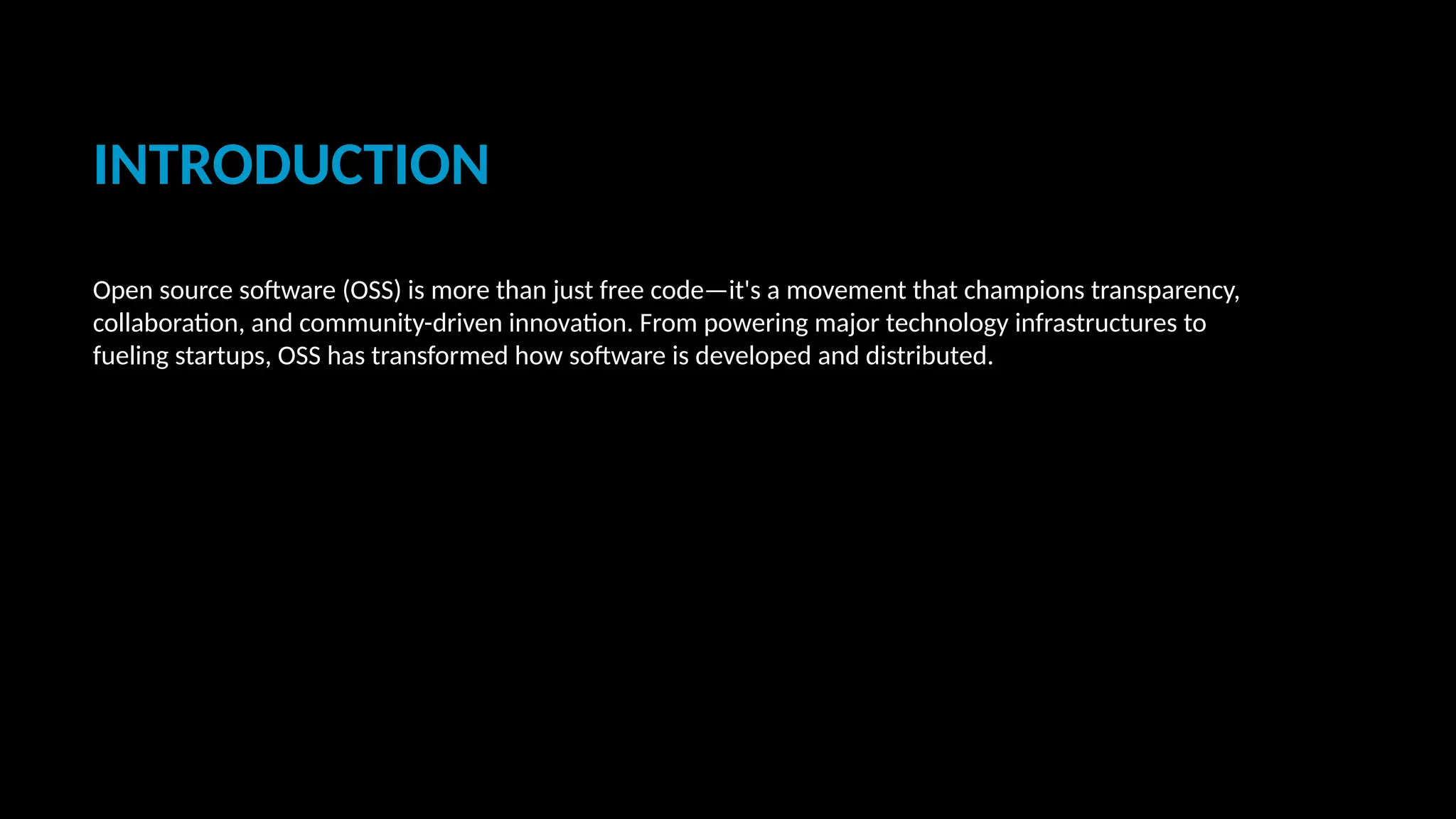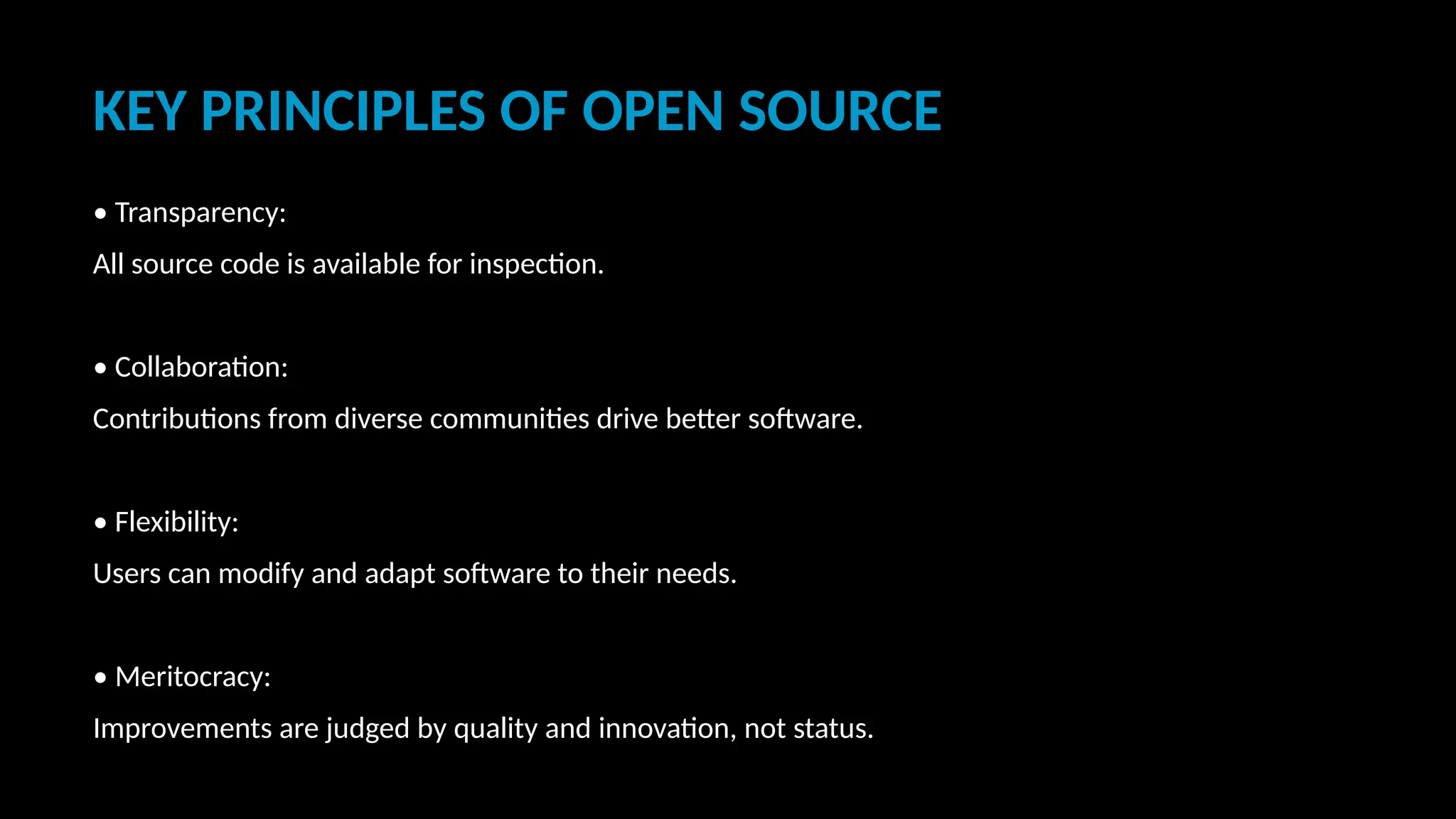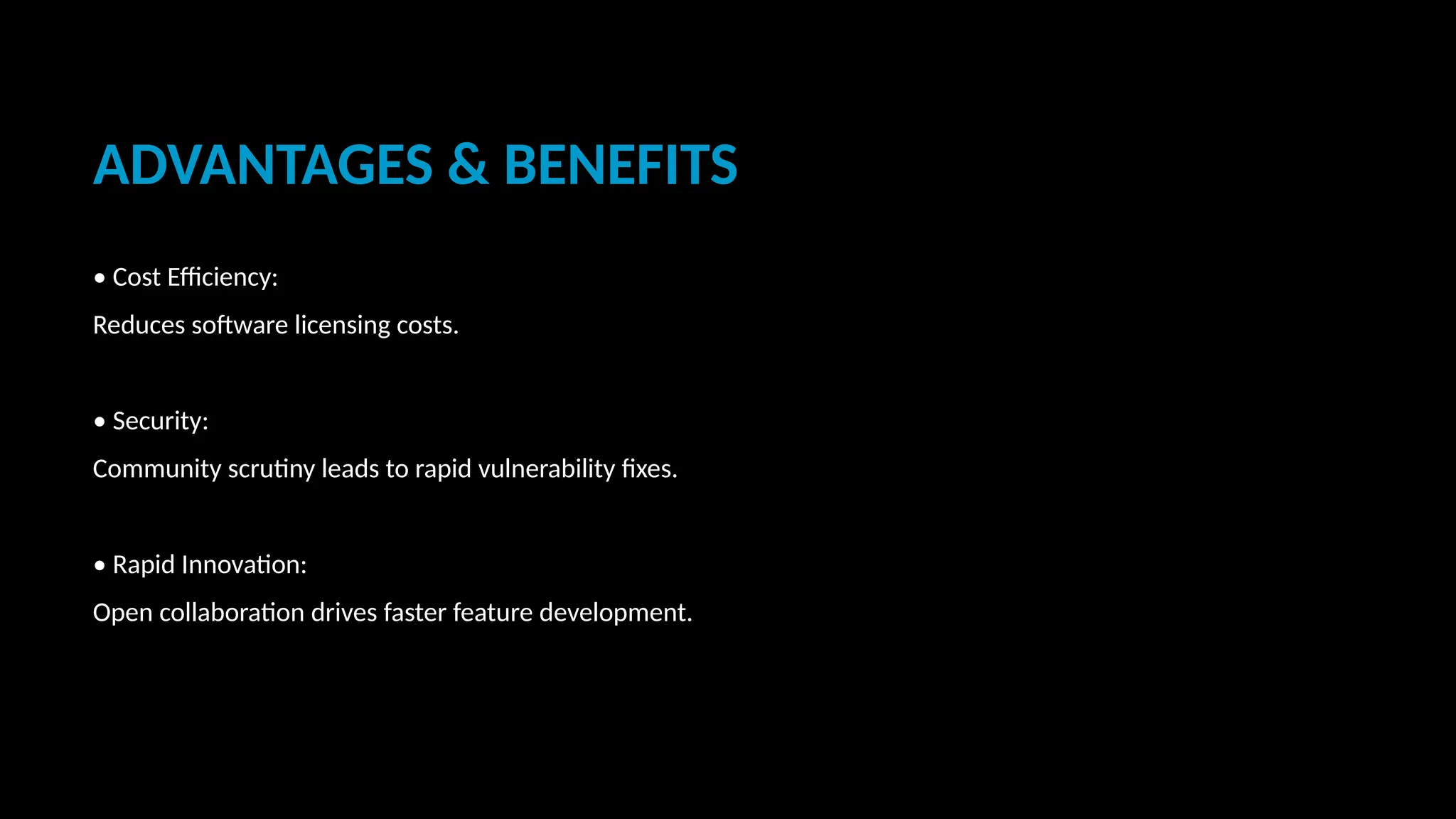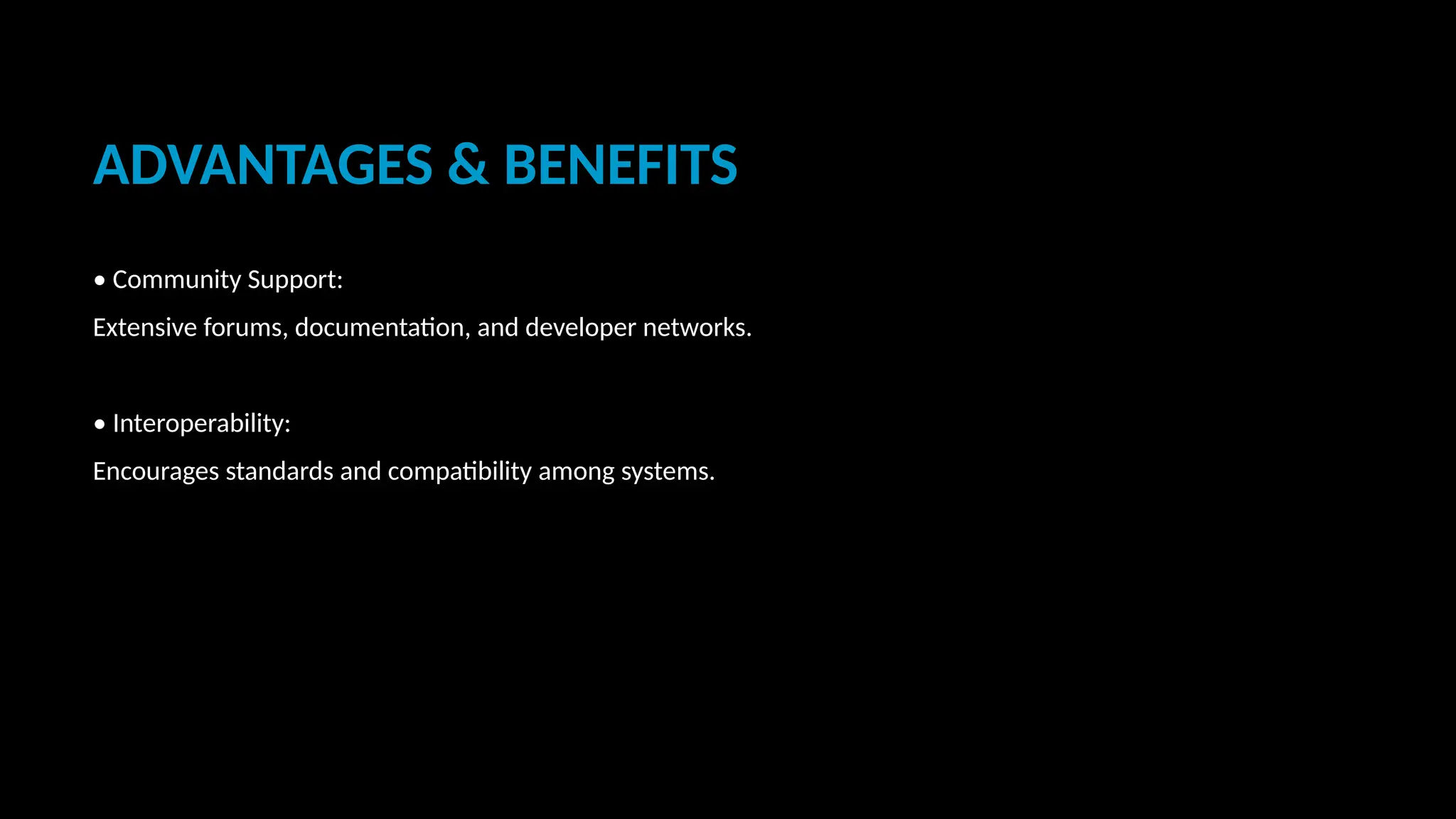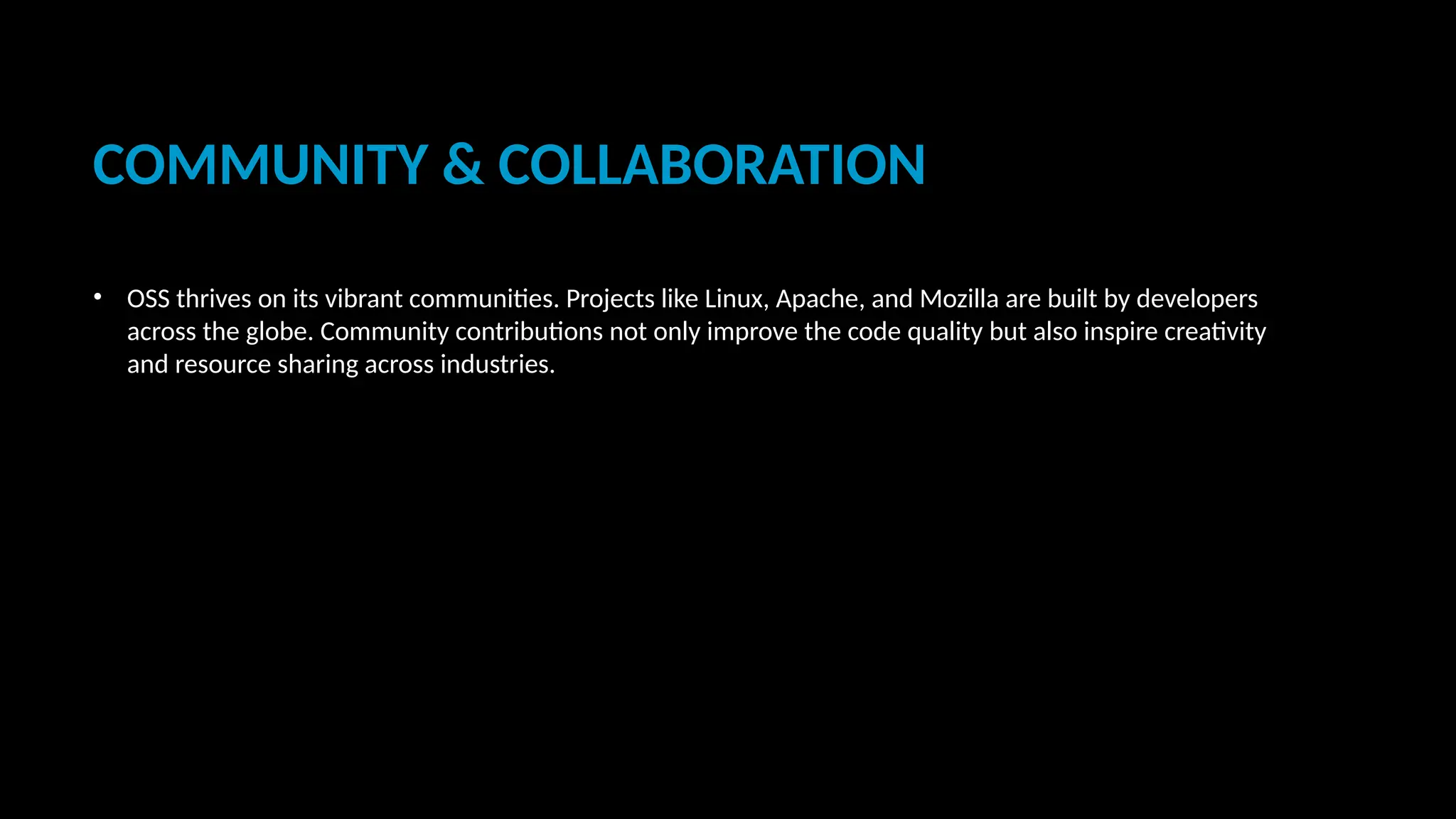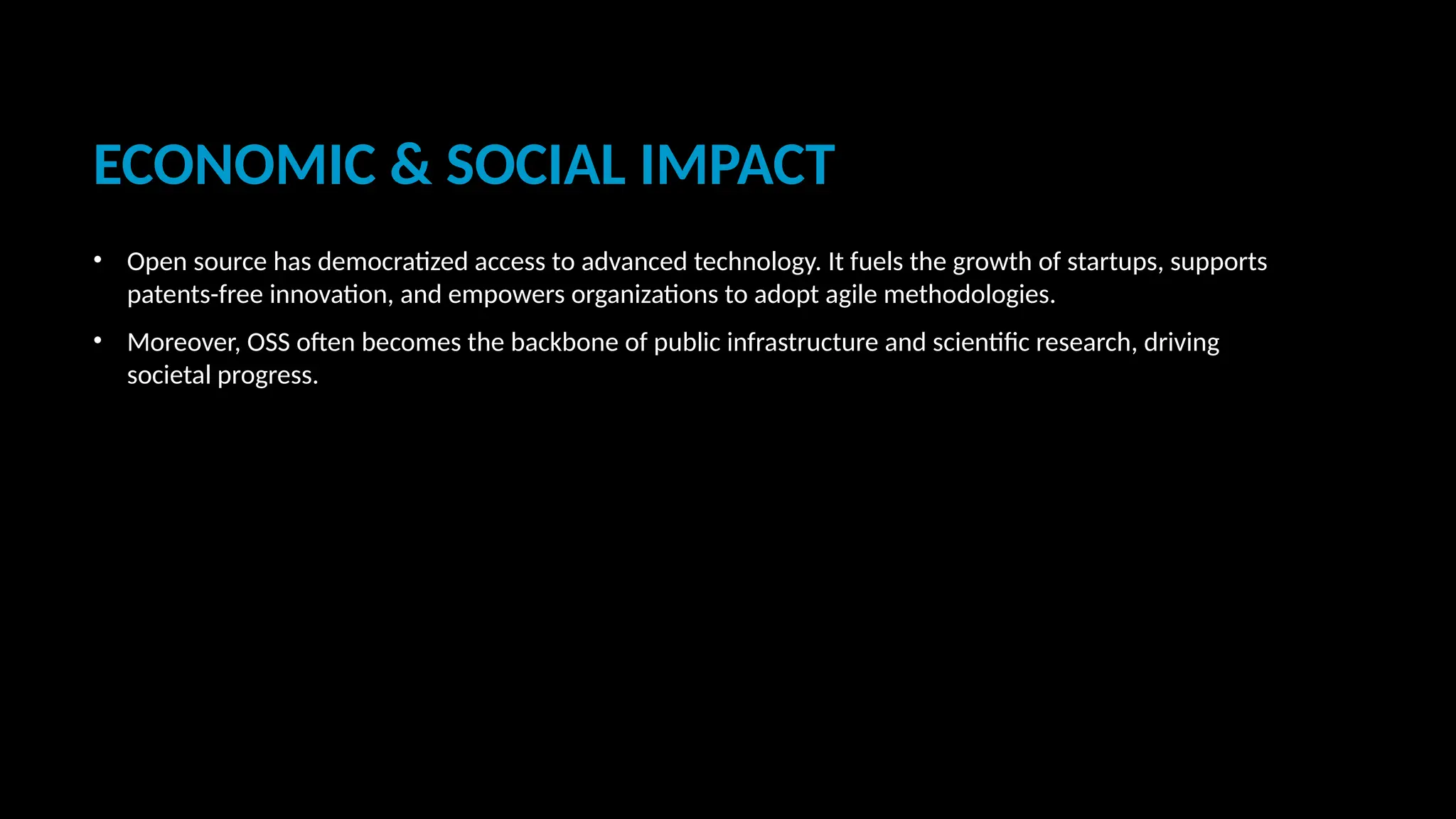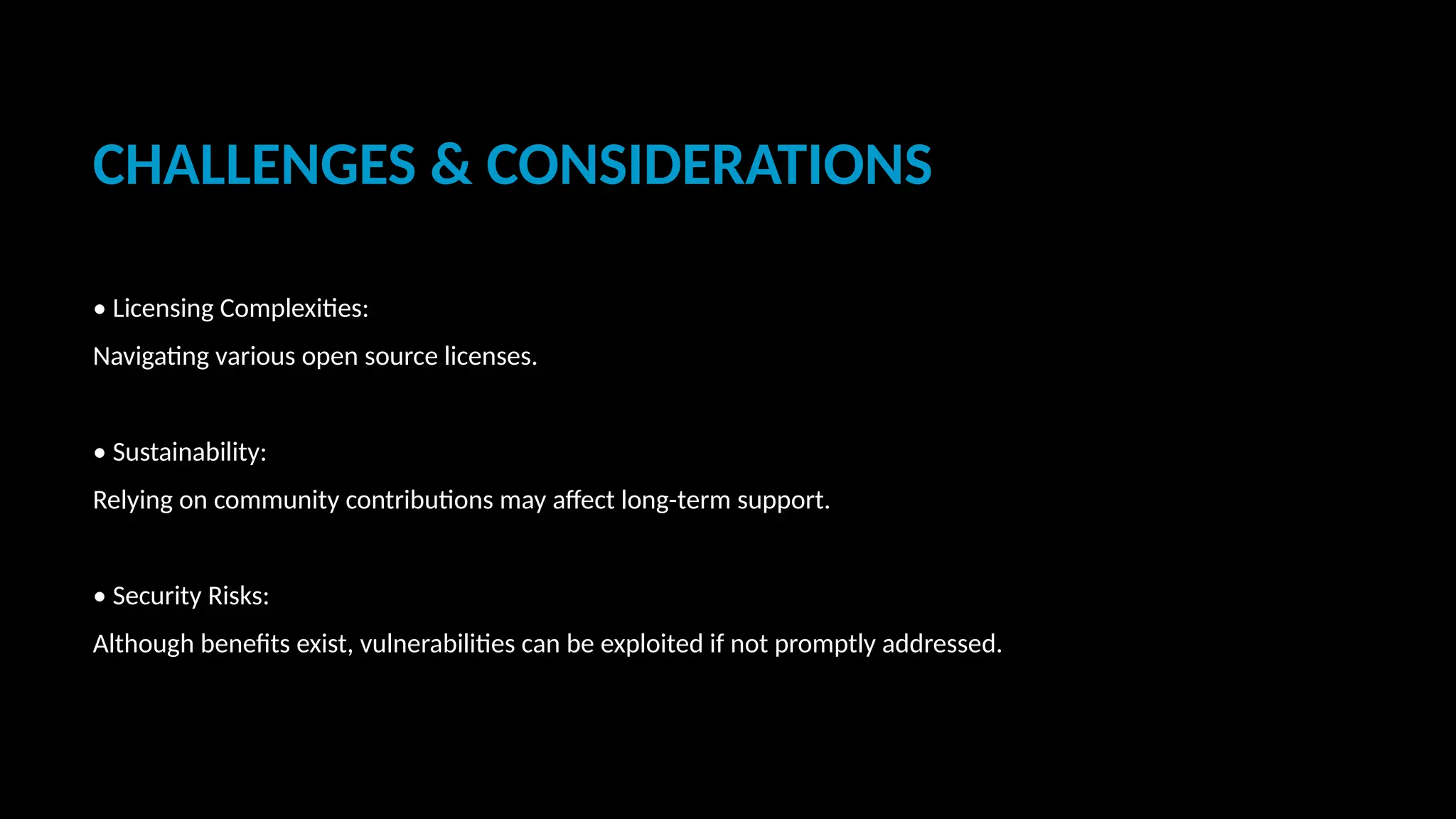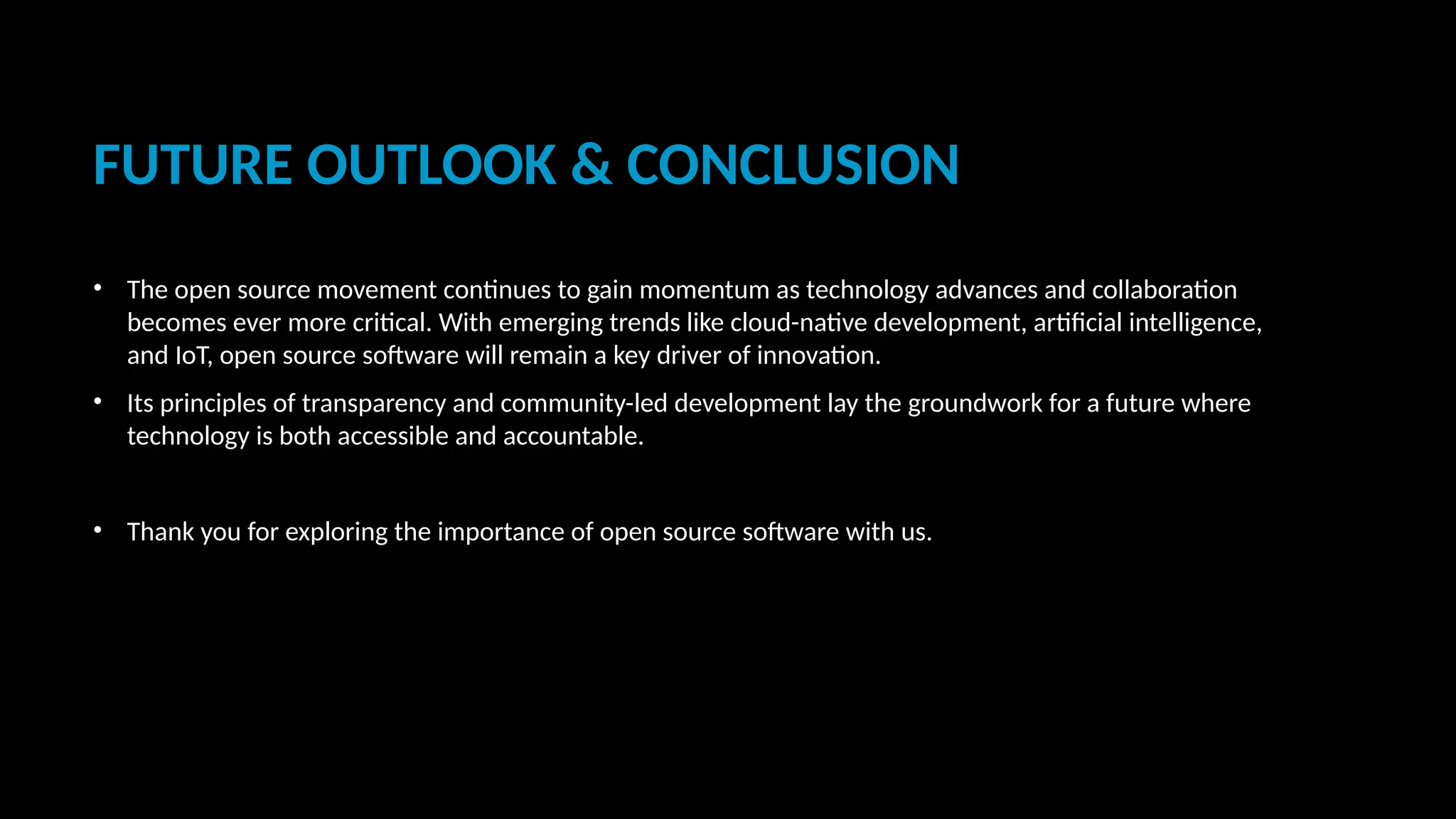Open source software (OSS) has become a cornerstone of modern technology, driving innovation, collaboration, and accessibility across industries. By providing freely available source code, open source empowers developers to build, modify, and share software, fostering a culture of transparency and community-driven progress. It reduces costs for businesses, accelerates development cycles, and ensures greater security through collective scrutiny.

